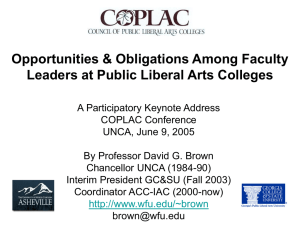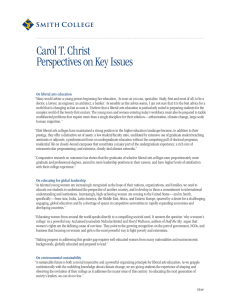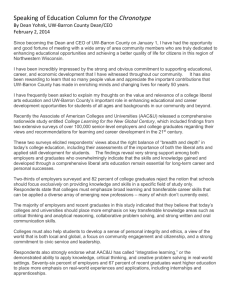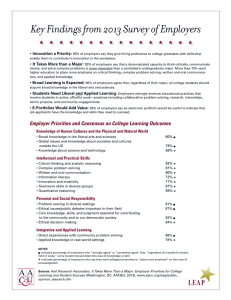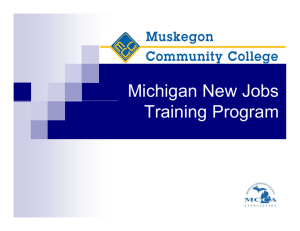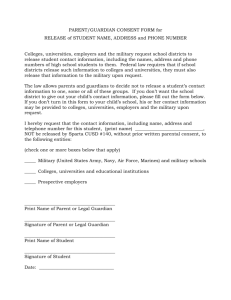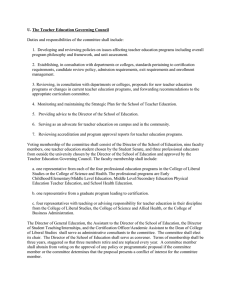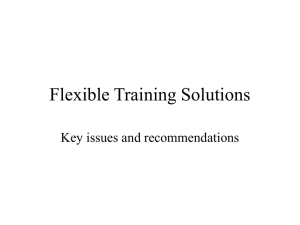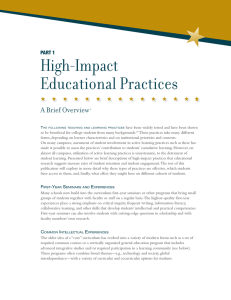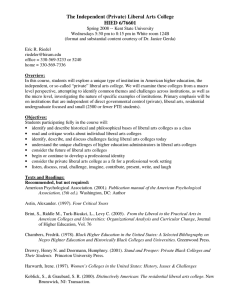Hart Research Associates
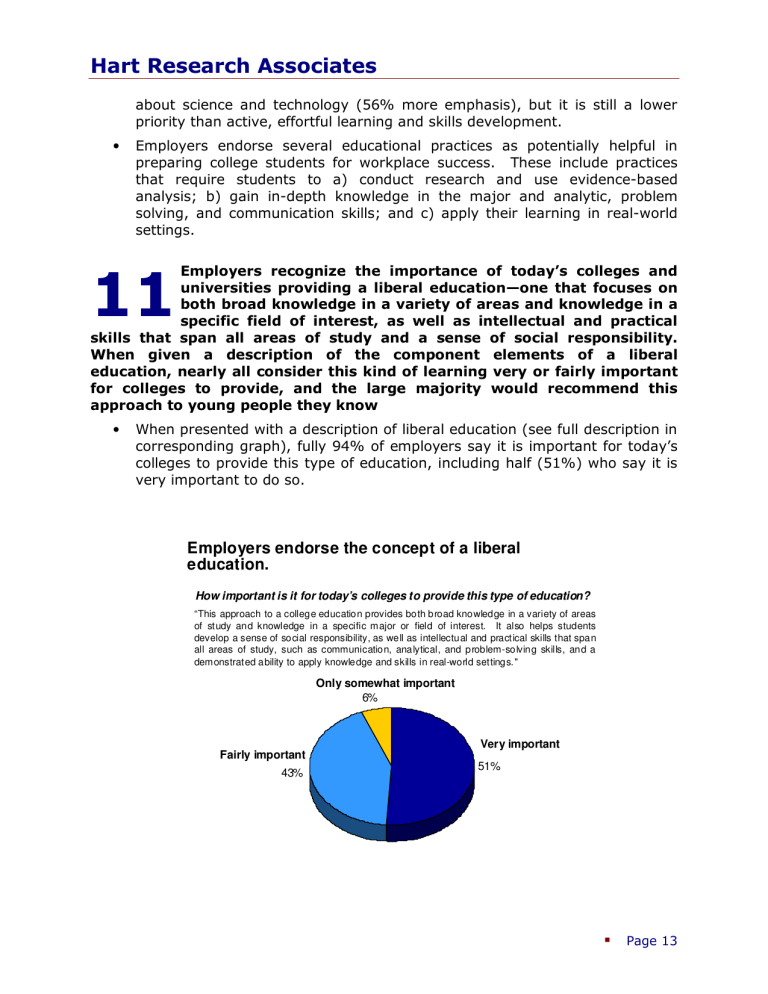
Hart Research Associates
about science and technology (56% more emphasis), but it is still a lower priority than active, effortful learning and skills development.
•
Employers endorse several educational practices as potentially helpful in preparing college students for workplace success. These include practices that require students to a) conduct research and use evidence-based analysis; b) gain in-depth knowledge in the major and analytic, problem solving, and communication skills; and c) apply their learning in real-world settings.
11 Employers recognize the importance of today’s colleges and universities providing a liberal education—one that focuses on both broad knowledge in a variety of areas and knowledge in a specific field of interest, as well as intellectual and practical skills that span all areas of study and a sense of social responsibility.
When given a description of the component elements of a liberal education, nearly all consider this kind of learning very or fairly important for colleges to provide, and the large majority would recommend this approach to young people they know
•
When presented with a description of liberal education (see full description in corresponding graph), fully 94% of employers say it is important for today’s colleges to provide this type of education, including half (51%) who say it is very important to do so.
Employers endorse the concept of a liberal education.
How important is it for today’s colleges to provide this type of education?
“This approach to a college education provides both broad knowledge in a variety of areas of study and knowledge in a specific major or field of interest.
It also helps students develop a sense of social responsibility, as well as intellectual and practical skills that span all areas of study, such as communication, analytical, and problem-solving skills, and a demonstrated ability to apply knowledge and skills in real-world settings."
Only somewhat important
6%
Very important
51%
Fairly important
43%
Page 13

